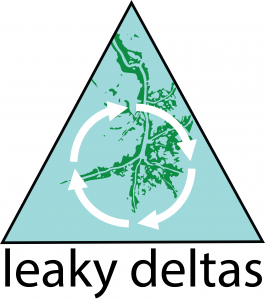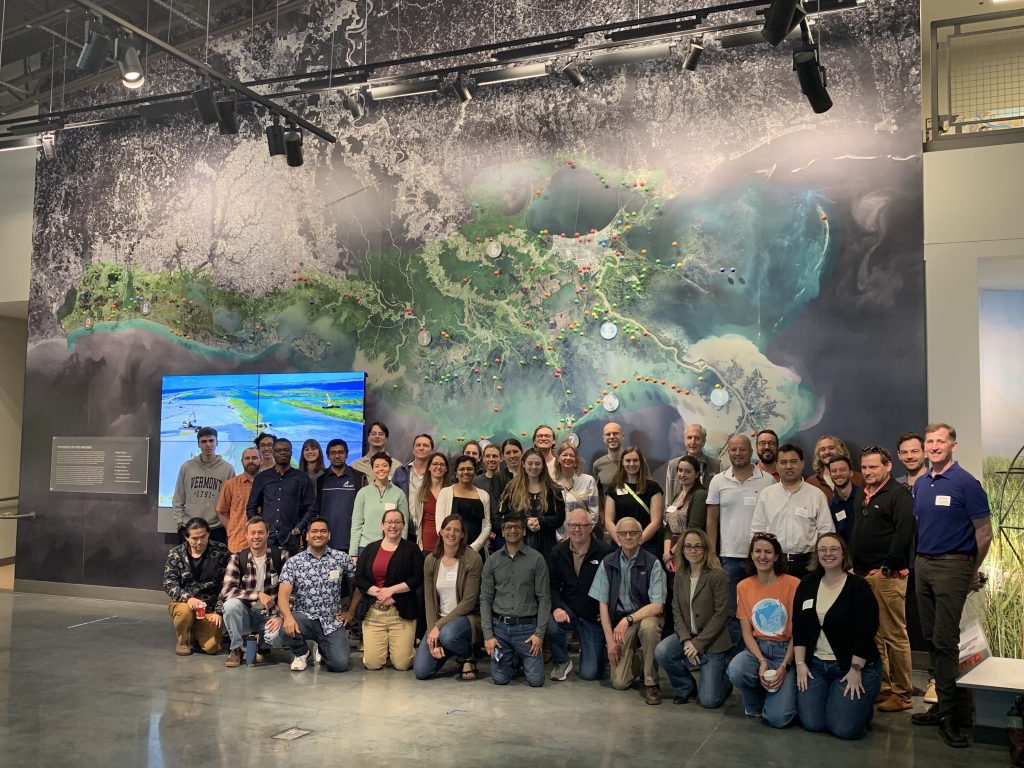

Thank you for another inspiring OCB workshop! Recordings of the plenary sessions will be available in 1-2 months on the OCB YouTube Channel, and we will post an announcement here.
February 4: Gerrit Trapp-Müller, Fei Da, and Gabriella Akpah Yeboah
October 24: Robert Twilley and Marc Simard
September 26: Muriel Bruckner and Anastasia Pillouras
May 30: Bob Aller
April 18: Bin Zhao and Thomas Bianchi
March 14: Christophe Rabouille
River deltas and the adjacent coastal ocean are critical interfaces between terrestrial and oceanic environments. Deltas are the entry point of ~50% of the fresh water and 40% of all global particulate matter entering the ocean. They are major centers for particulate and dissolved organic carbon net transfer from land to ocean.
Recent evidence suggests that coastal oceans have become net sink for atmospheric CO2 during post-industrial times and continued human pressures in coastal zones and alterations to deltas will likely have an important impact on the future evolution of the coastal ocean’s carbon budget.
Despite the importance of deltas and blue carbon ecosystems to the global carbon cycle and coastal communities, land-to-ocean parameterizations in Earth System models are highly simplified and do not mechanistically include many of the processes involved in cycling carbon in these areas.
Significant and critical knowledge gaps on processes, their impacts on marine biogeochemistry, and the direction of future change exist—this workshop aims to address those knowledge gaps.
We will bring together scientists who are committed to exploring the physical, temporal, and biogeochemical processes that modulate fluxes of carbon to and from global deltas.
This scoping workshop will utilize momentum from the OCB 2023 Summer Workshop plenary session focused on deltaic systems to build a network of modelers, experimentalists, and field scientists working on deltas in this era of unprecedented climate change and other anthropogenic stresses, and will address and advance several OCB mission-specific topics:
Shaily Rahman (UC Boulder)
Kanchan Maiti (LSU)
Jaap Nienhuis (Utrecht University)
Cristina Schultz (Northeastern University)
Elizabeth Chamberlain (Wageningen University)
Julia Moriarty (CU Boulder)
Marisa Repasch (University of New Mexico)
WORKSHOP TOPICS
Ocean biogeochemistry – Influence of delta systems on adjacent coastal ocean in terms of carbon cycle (DIC/ALK/pCO2) both in water column and sediment, carbon burial and lateral transport of carbon.
Ecosystems – Role of salt marshes, mangroves, and sea grass on carbon retention and burial in delta plain and net export to adjacent ocean; reconstructions and forecasts of the distribution of these coastal ecosystems.
Novel methods and integration – Employing new technologies, e.g., chronology, remote sensing, to reconstruct and monitor delta change; integrating field and model data to study processes and change across timescales (past, present, and future).
Connectivity – Variability in hydrological connectivity across delta plain and delta shelf and its impact on carbon consumption, transport and retention.
Perturbations – Impact of climate and human driven changes including extreme events on delta carbon cycling.
Biogeochemical modeling: including mechanistic understanding of carbon cycling in the land-to-ocean continuum in global models, parameterizations of blue carbon ecosystems in high-resolution ocean models, quantifying organic and inorganic carbon transfers from deltas to theocean.
PRE-WORKSHOP
Objectives
Activities
OUTCOMES
The workshop aims to develop knowledge and define future research needs on the role of deltas in the global carbon cycle while building an interdisciplinary community around this understudied yet critical aspect of ocean biochemistry. To distribute these outcomes to the broader community there will be a consensus paper, a global delta carbon budget infographic, and an AGU Eos piece.
Role of deltaic sediments in regulating biogeochemical cycles (Chairs: Shaily Rahman, Jessica Luo, Cristina Schultz)
OCB2023 PLENARY SESSION TALKS (recorded June 2023)